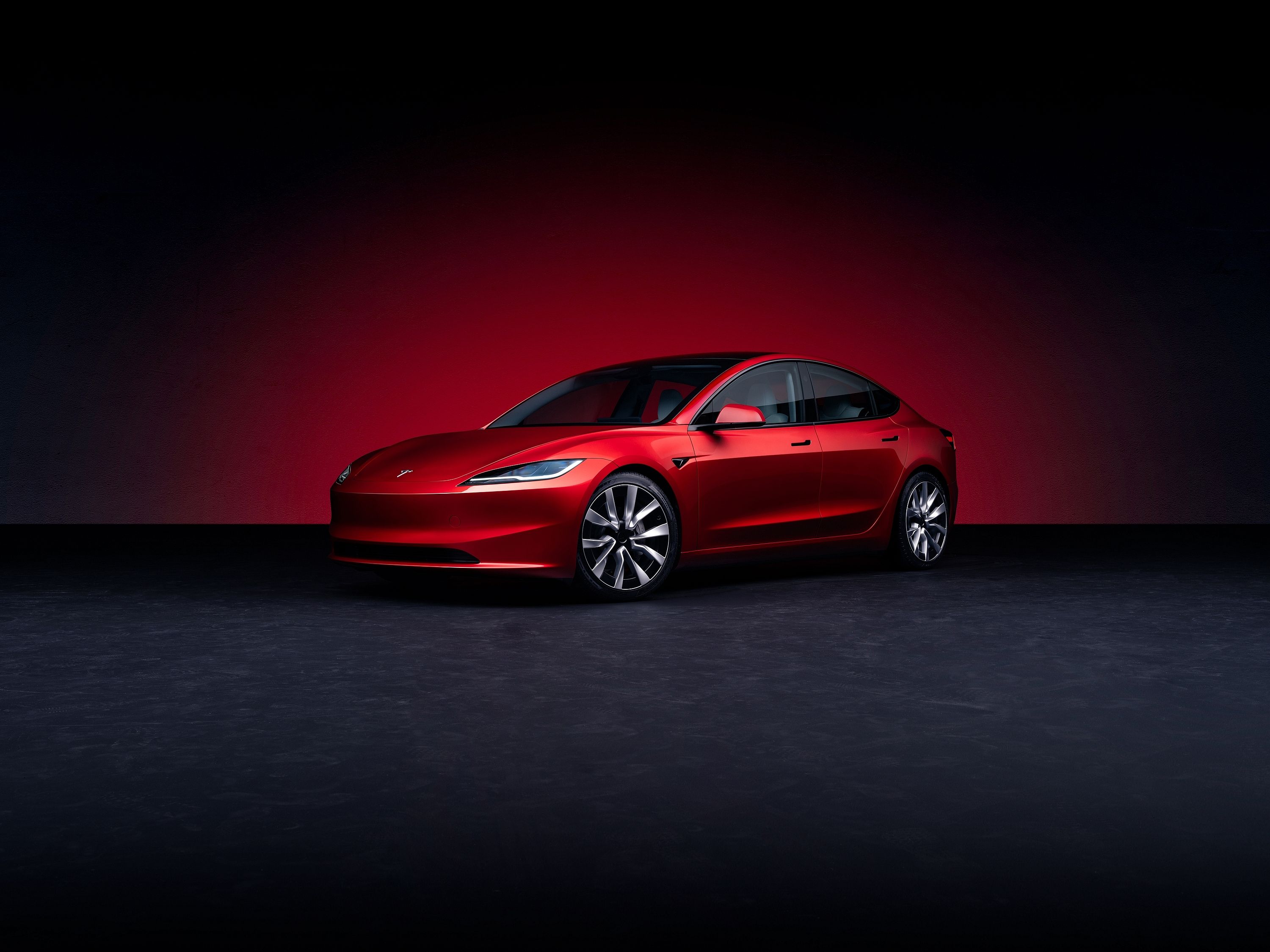
As far as dynamic, high-performance electric vehicles go, you can hardly do better than a Porsche Taycan. A slew of recent updates for the 2021 model year made the range-topping Turbo S even quicker, but the entry-level 4S is hardly a slouch and will hit 60 mph in under four seconds.
However, at over $100,000, not everyone can afford a Taycan. Enter the Tesla Model 3, which at a much more attainable $54,990 in Performance guise, will hit 60 in just 3.2 seconds. The base models are quick, too, although some Tesla owners have gone hunting for even more power. In a display of just how far EVs have come, the two cars hit the Nurburgring for a high-speed lap, with the only sound coming from the Model 3's sound system and some chatter from the driver and passenger.
The uploader states that the Model 3 in question was the Performance with the Track Pack V2 with around 500 horsepower, whereas the Taycan was a 4S with the Performance Plus battery and an output of about 530 horses. Tesla's track upgrade allows more customization over the Model 3's handling, including control over front/rear power distribution and how aggressively the stability control system intervenes.
Notably, the official stat sheets show that the Taycan is nearly 1,000 pounds heavier, negating its on-paper power advantage. Both are predictably rapid, though, with the Model 3's huge digital display providing an indication of how quickly the two cars pick up speed. Both EVs exceeded 124 mph on a couple of occasions and hit over 140 mph on one of the straighter sections.
At no point did it look as if the Taycan 4S was capable of truly shaking the Model 3 so unless you really need the extra luxury offered by the Porsche, the Tesla offers comparable performance for a lot less money. The Tesla appeared tidy and controlled throughout, although some commenters did question the abilities of the Taycan driver. If you do find the need to take your Model 3 out for a couple of hot laps, note that the driver here saw the battery's charge dive from 95 percent to 53 percent after only two laps.
The Taycan was marginally superior in this regard, with a drop in charge from 95 to 56 percent. The video description explains that the Tesla lost some of its performance in a second lap (not shown in the video), whereas the Porsche maintained top-notch power for each run. Either way, both cars prove they are capable of much more than blistering straight-line launches.
